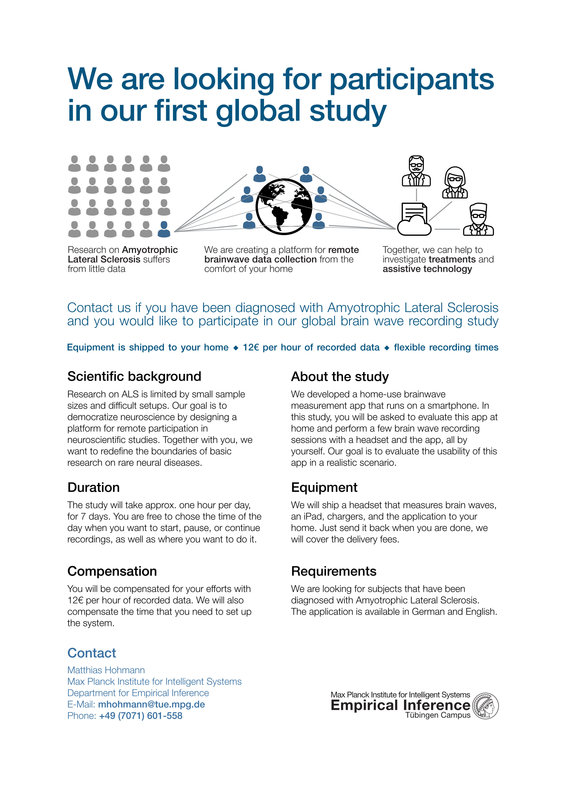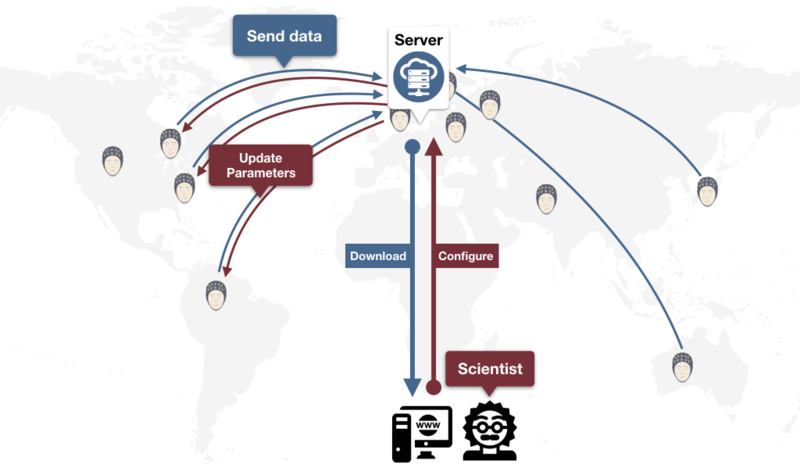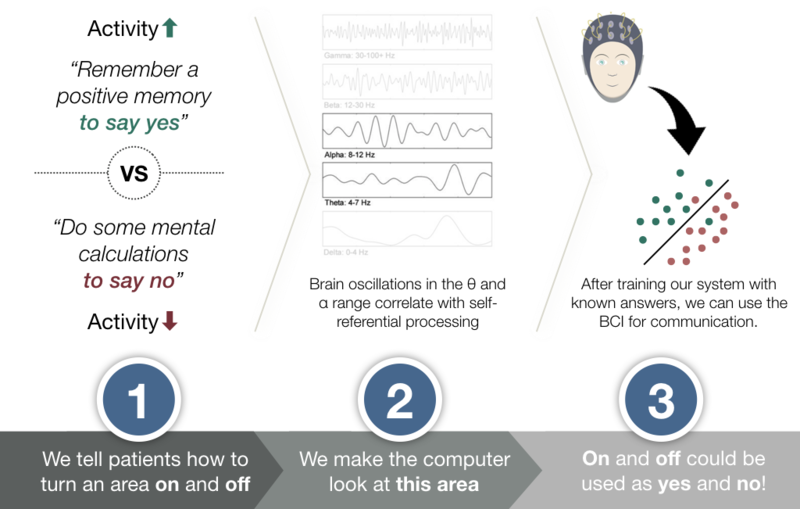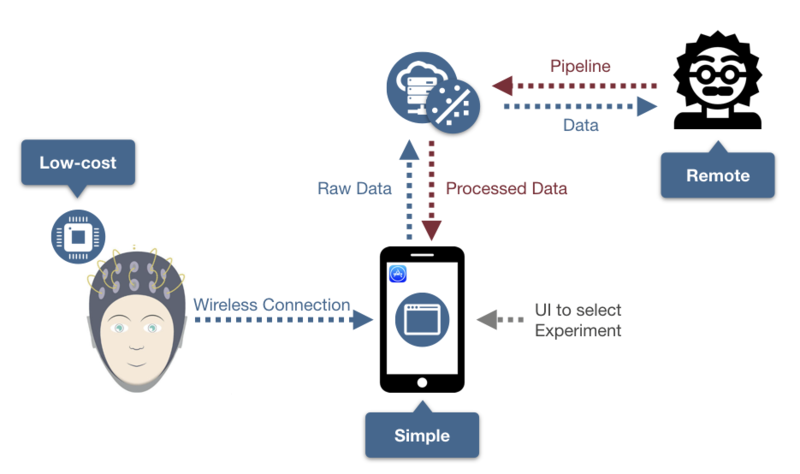Note: Matthias Hohmann has transitioned from the institute (alumni).
Background and Interests
Please refer to my LinkedIn for more information: https://www.linkedin.com/in/matthiashohmann/
Project Mynd
People that suffer from complete paralysis have nothing left to interact with their environment – except for their thoughts. Today, assistive systems that interpret thoughts by measuring brain activity are expensive and difficult to set up, which makes them inaccessible for the people that need them the most.
Our goal is to design a distributed brain-computer interface (BCI) that is affordable, easy to use for paralysed people and their caregivers, easy to control for researchers, and that integrates well with existing assistive technologies at home. The platform will increase the life quality of the people in need and break with the limitations of expensive neuroscientific research.
Call for participants

Background
I am a current PhD candidate at the Max Planck Institute for Intelligent Systems, focusing on Brain-Computer-Interfaces for completely locked-in ALS patients.
I completed a Master's degree in Neuroscience at the International Max Planck Research School in Tübingen, as well as a Bachelor's Degree in psychology with a minor in physiology. I worked alongside on several research projects in Germany and the US.
My current interests involve Neuroimaging, Neurofeedback, Neuroprosthetics and Cognitive Enhancement. I am excited to combine research with an entrepreneurial approach. My goal is to take Cognitive Enhancement and Rehabilitation technology to a level where it can easily be distributed to everyone.
I am always searching for ways to combine basic research and its application. I want to make use of the things I learn and discover.
Professional Experience
Max Planck Institute for Intelligent Systems
Brain-Computer-Interface Group
Supervisor: Dr. Moritz Grosse-Wentrup
Lab Rotation, Master Thesis, & Dissertation
Max Planck Institute for Biological Cybernetics
Social and Spatial Cognition Group
Supervisor: Dr. Stephan de la Rosa
Lab Rotation
Max Planck Institute for Experimental Medicine
BCCN Focus Neurotechnology (Stühmer Department)
Internship
University of Mannheim
Chair for Cognition and Individual Differences (Erdfelder Department)
Student Assistant
New York University, NYU
Center for Neural Science (Suzuki Department)
Internship
Education
International Max Planck Research School Tübingen
Neurotechnology, PhD
(October 2015 - today)
Neural & Behavioral Sciences, M.Sc.
(September 2013 - September 2015)
University of North Carolina at Greensboro
Psychology & Physiology
(August 2012 - December 2012)
University of Mannheim
Psychology, B.Sc.
(September 2010 - June 2013)
Full CV on LinkedIn: http://lnkd.in/SVdgMN
What is Project Mynd about?
People that suffer from complete paralysis have nothing left to interact with their environment – except for their thoughts. Today, assistive systems that interpret thoughts by measuring brain activity are expensive and difficult to set up, which makes them inaccessible for the people that need them the most.
Our goal is to design a distributed brain-computer interface (BCI) that is affordable, easy to use for paralysed people and their caregivers, easy to adjust for researchers, and that integrates well with existing assistive technologies at home. The platform will increase the life quality of the people in need and break with the limitations of expensive neuroscientific research.

How does our brain-computer interface work?
We know that certain kinds of thoughts activate certain regions in the brain. Thinking about a positive childhood memory may activate a brain region that helps to let your mind wander. Doing mental calculations may deactivate this region. These differences are large enough for us to measure them with sensors on the top of your head. After some training, we can instruct our computer to take "positive memory" for a "yes", and "mental calculations" for a "no". Still, everyone's brain is a little different and many factors influence its behavior! That's what makes it challenging to build a system that works reliably, even for a single person.

Why are we building this platform?
We work with people that suffer from Amyotrophic Lateral Sclerosis (ALS), a progressive neurodegenerative disease that takes away all voluntary muscular control until it leaves the patient completely paralysed. Very few people suffer from this disease, and research has been struggling to find out more about its origins and effects due to the small sample size. We hope to overcome this limitation by allowing people to participate remotely in global brainwave studies that are hosted on our platform. The user is at the center of our work: We design our application such that it is easy and enjoyable to use, and all data is transmitted and stored securely.

How can I get involved?
Your input is always welcome. If you were diagnosed with ALS or know someone who was, we would be honored to improve our platform based on your thoughts. Feel free to contact us anytime if you would like to participate in the first pilot study.


